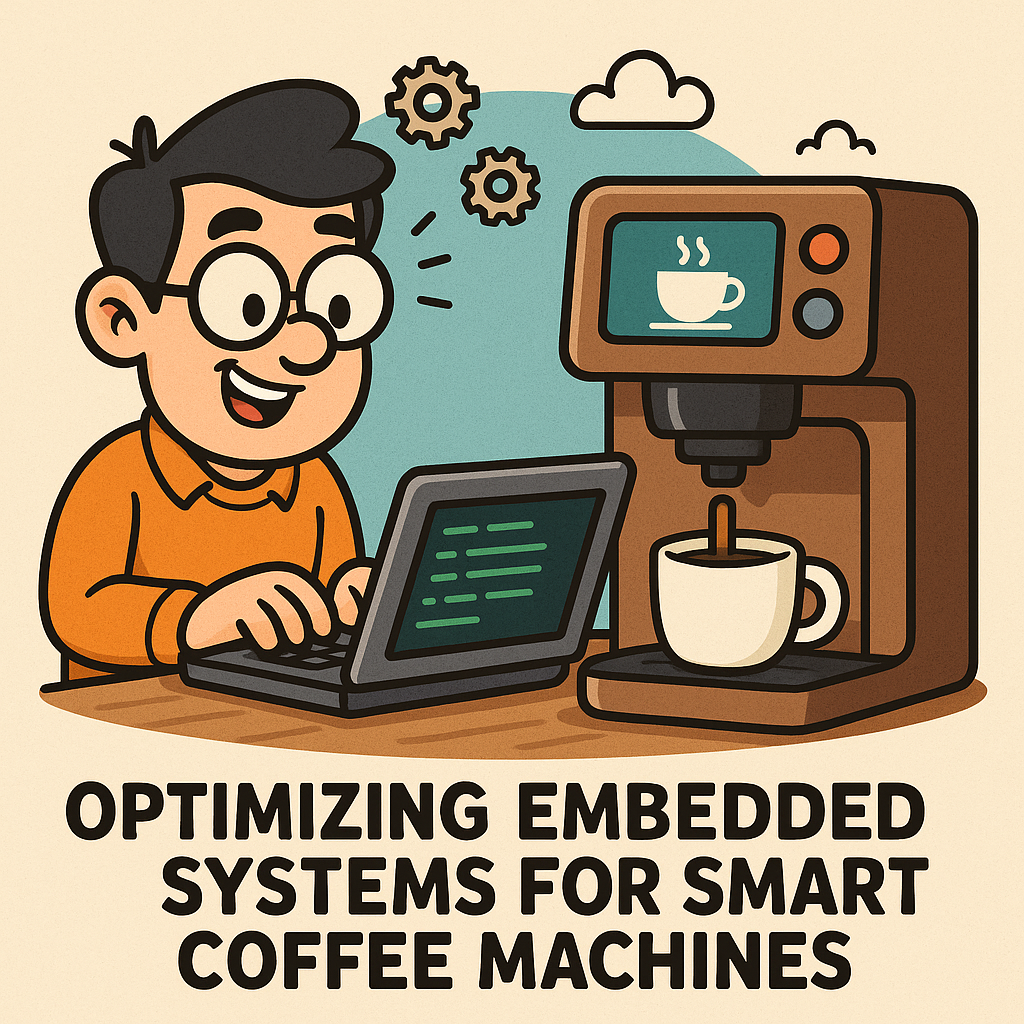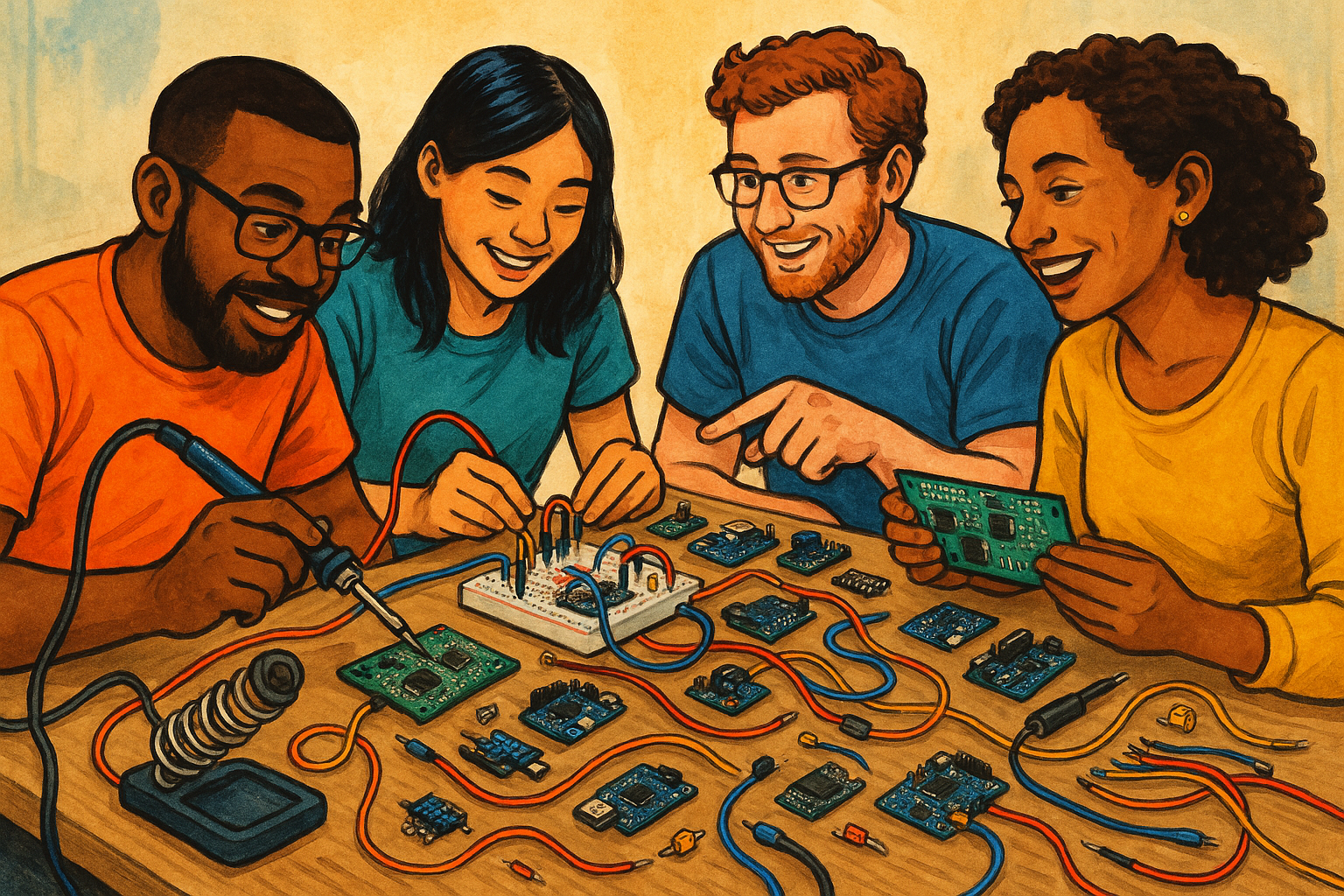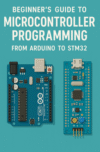Understanding the Role of Embedded Systems in Smart Coffee Machines
For many of us, the day starts with a warm cup of coffee, but the journey from bean to brew is increasingly becoming a high-tech endeavor. Enter the smart coffee machine, where embedded systems play a pivotal role in optimizing the brewing process. These systems are not merely about convenience; they represent a marriage of precision, technology, and user experience that is transforming how we enjoy our daily caffeine fix.
The Microcontroller Revolution: Choosing the Right Brain
At the heart of every smart coffee machine lies a microcontroller, and the choice between options like STM32 and ESP32 can dramatically impact performance. STM32 microcontrollers, known for their robustness and flexibility, are often favored for complex brewing profiles. Meanwhile, ESP32 brings the power of Wi-Fi and Bluetooth connectivity, allowing coffee lovers to control their machines remotely via smartphone apps. With the rise of IoT, the integration of these technologies is paving the way for more personalized brewing experiences.
Precision Brewing: The Art of Temperature and Pressure Control
For the perfect cup of coffee, temperature and pressure are crucial. Embedded systems enable precise control over these variables, ensuring that every brew achieves the optimal extraction of flavors. Temperature sensors, such as thermocouples or thermistors, work in tandem with advanced control algorithms to maintain the ideal brewing temperature, typically between 195°F and 205°F. These systems are equipped with PID (Proportional-Integral-Derivative) controllers that adapt in real-time, correcting any deviations to ensure consistency.
Hardware-Software Integration: The Backbone of Smart Brewing
A seamless hardware-software integration is vital for the performance of smart coffee machines. Using development platforms like Arduino or Raspberry Pi, engineers can prototype and test brewing algorithms before deployment. The synergy between hardware and software not only enhances the brewing process but also allows for continuous updates, enabling manufacturers to refine brewing techniques based on user feedback. This cycle of improvement is essential in a competitive market where coffee enthusiasts are always seeking the next best brew.
Data-Driven Brewing: Leveraging Embedded Analytics
Imagine a coffee machine that learns your preferences over time. With embedded analytics, smart machines can track user interactions and adapt their brewing methods accordingly. This feature is made possible through data collection and machine learning algorithms. By analyzing variables such as the time of day, user preferences, and even external factors like weather, these machines can predict the perfect brew settings for each user. This not only enhances the user experience but also opens new avenues for coffee brands to engage with their customers.
Security in Smart Coffee Machines: A Growing Concern
As with any IoT device, the security of smart coffee machines is paramount. With connectivity comes vulnerability, making it essential for manufacturers to implement robust security protocols. This includes securing data transmission, using encryption, and ensuring regular software updates to patch any vulnerabilities. As consumers become more aware of IoT security issues, companies that prioritize this aspect will gain a competitive edge.
Future Trends: Robotics and AI in Coffee Brewing
Looking ahead, the integration of robotics and artificial intelligence into coffee brewing is on the horizon. Imagine a robotic barista powered by advanced AI algorithms, capable of brewing your coffee just the way you like it—every single time. With platforms like the Jetson Orin Nano providing the necessary computing power, this futuristic vision may soon become a reality. As the technology evolves, so too will the expectations of coffee consumers, pushing manufacturers to innovate continuously.
In a world where every detail matters, optimizing embedded systems for precision brewing in smart coffee machines is not just a technical challenge; it’s a pathway to creating unparalleled coffee experiences. As we embrace these advancements, we inch closer to a future where technology and tradition blend seamlessly, ensuring that every cup of coffee we enjoy is crafted to perfection.



